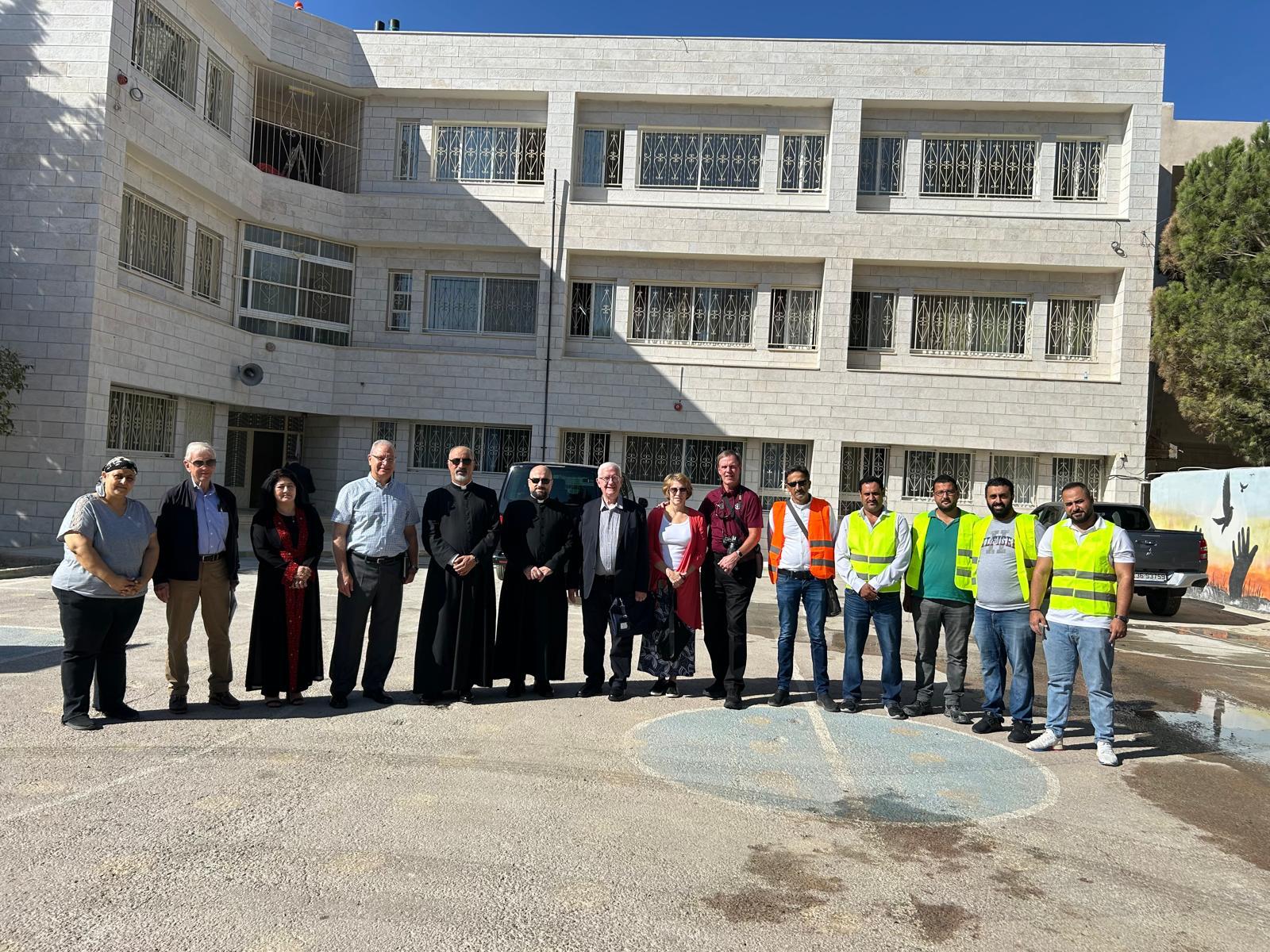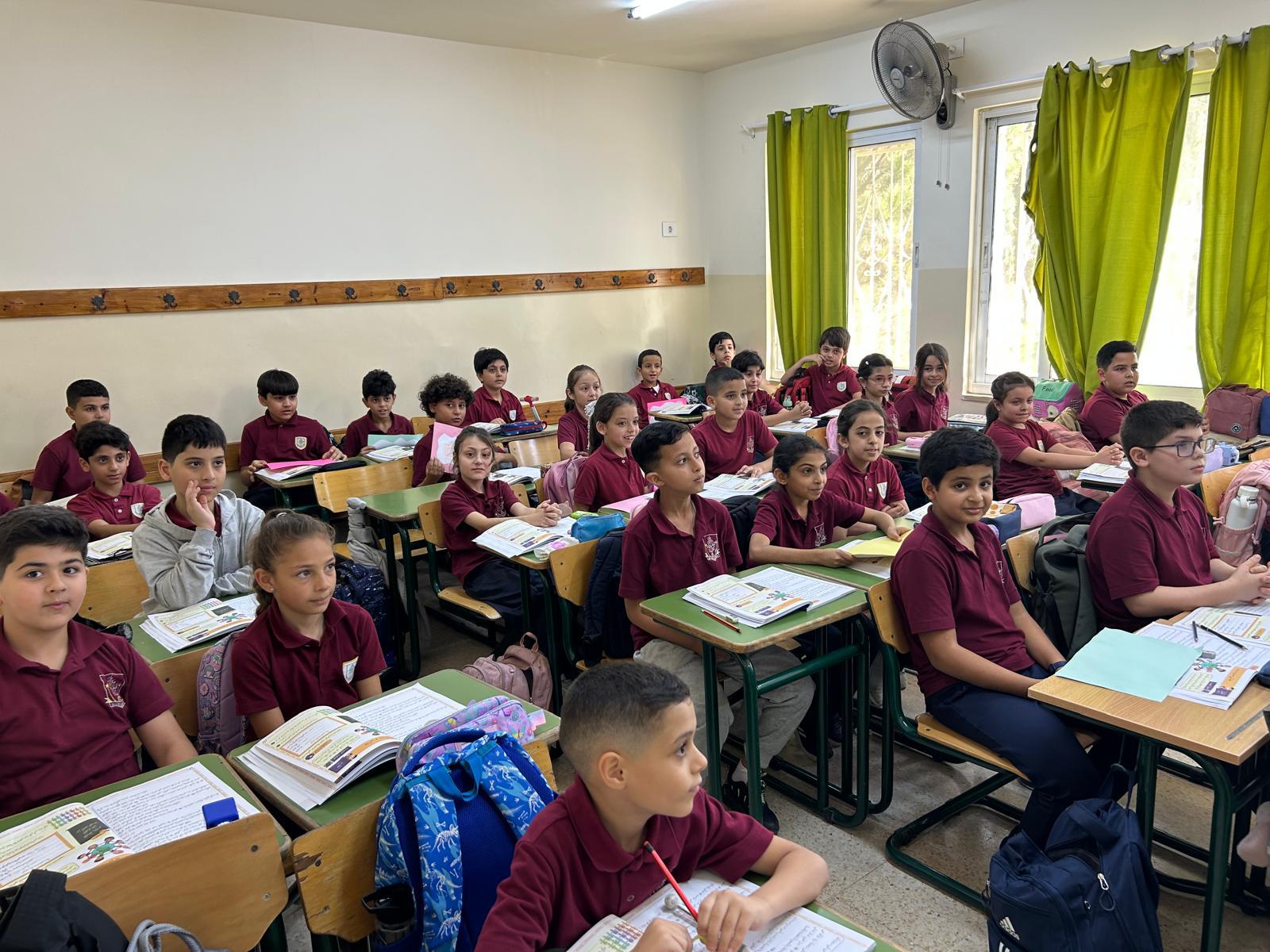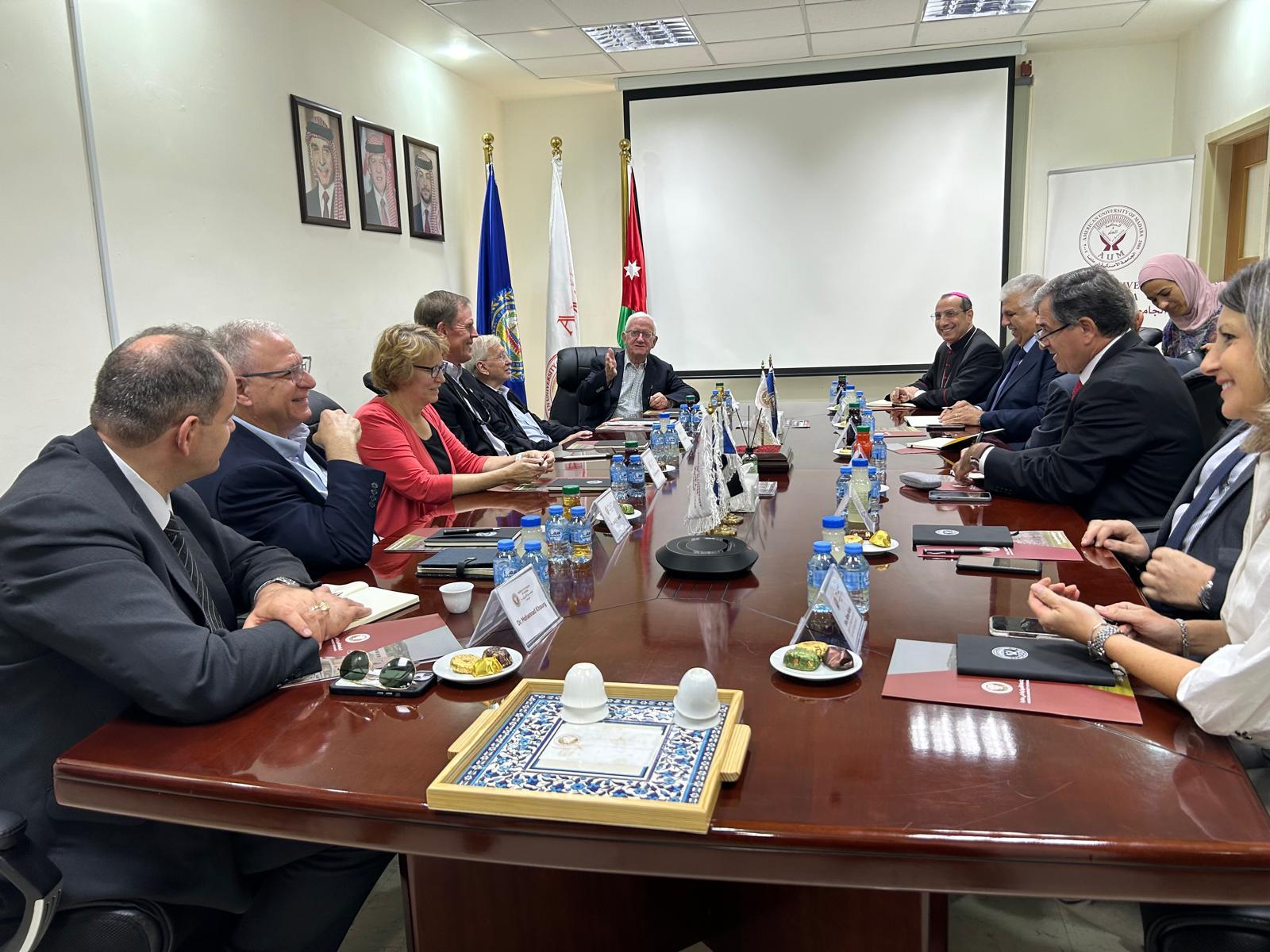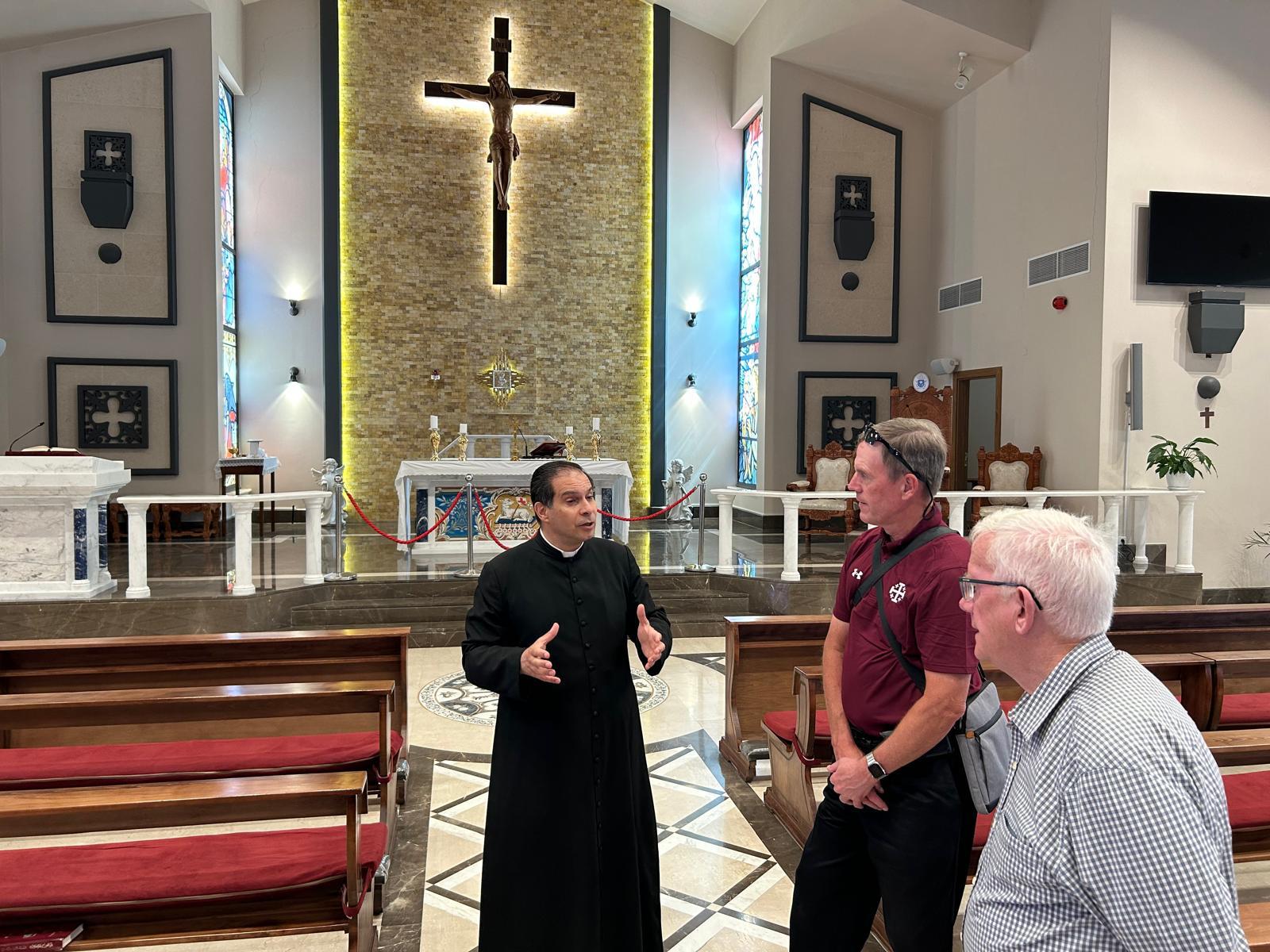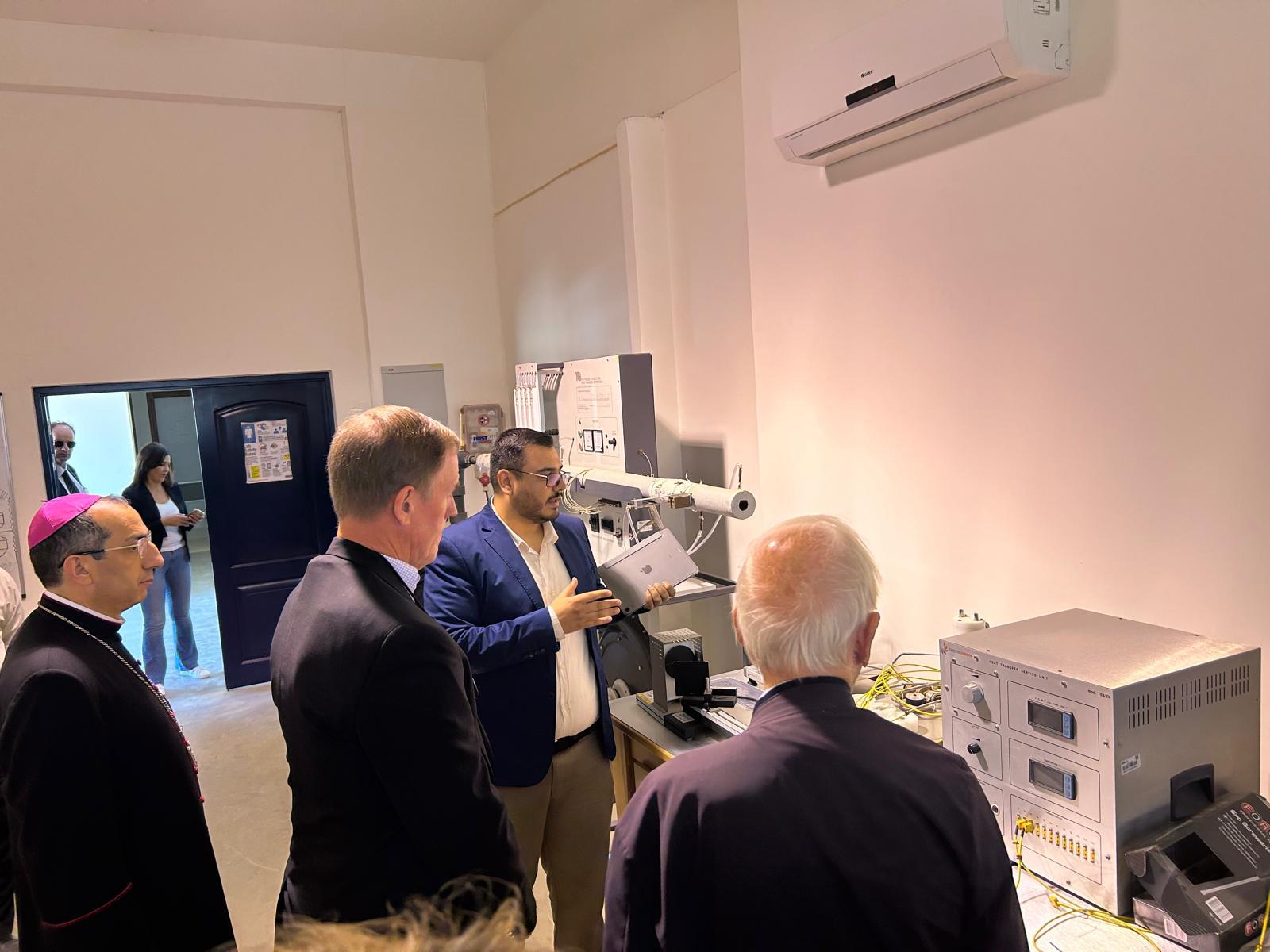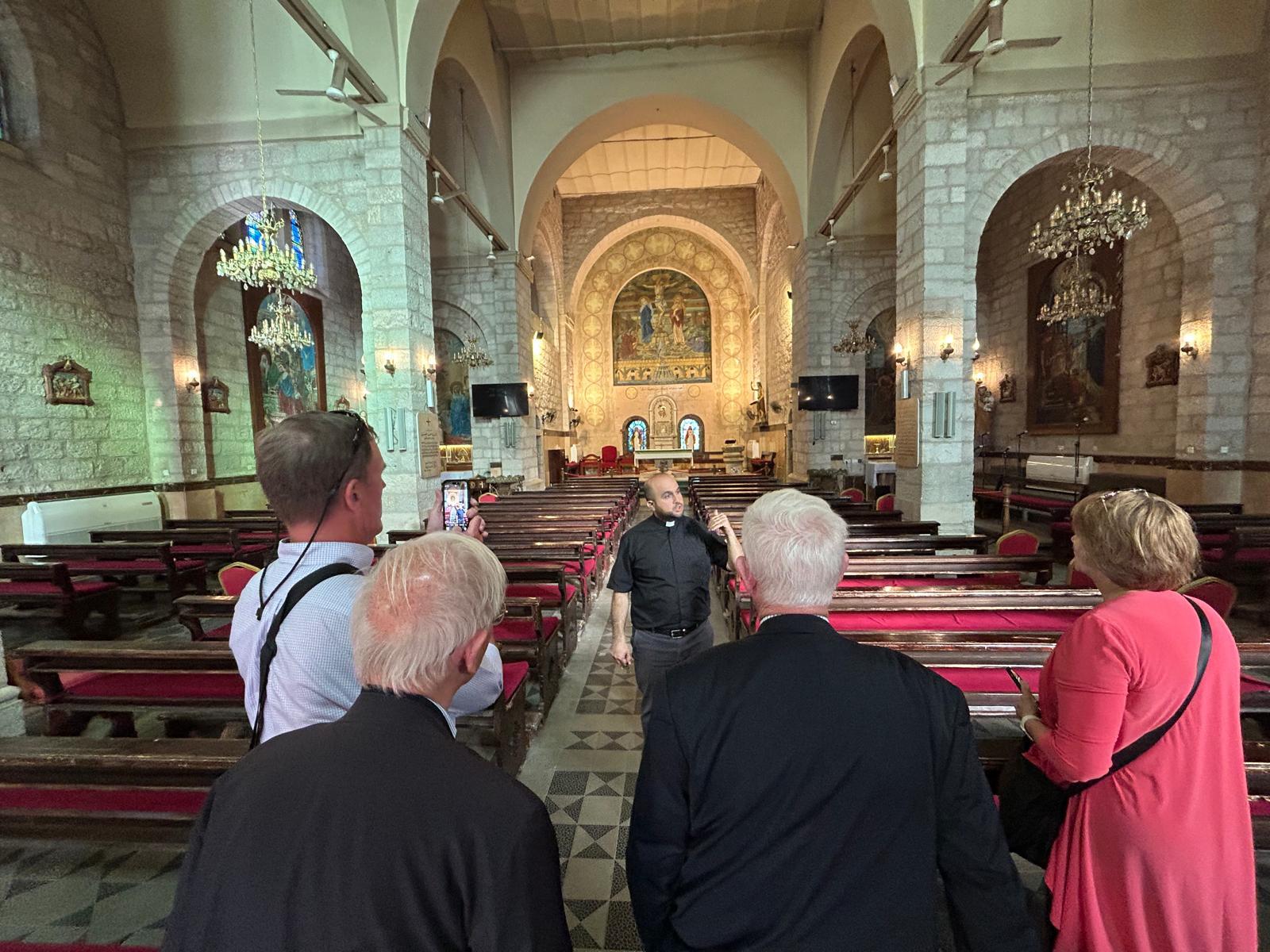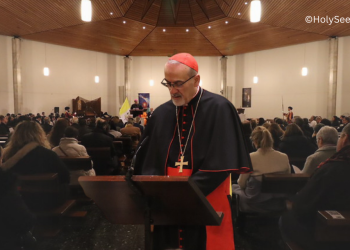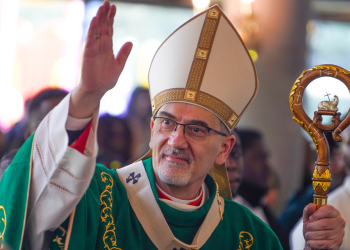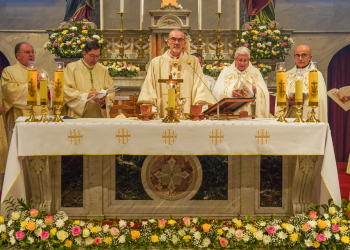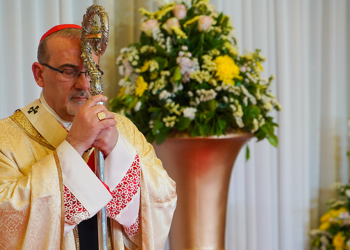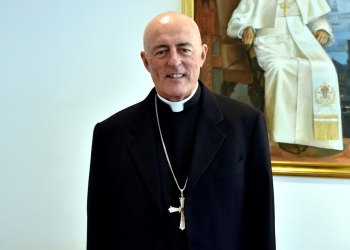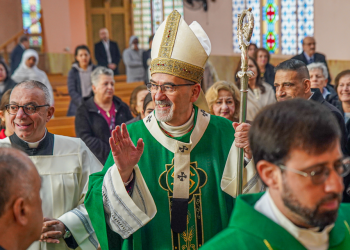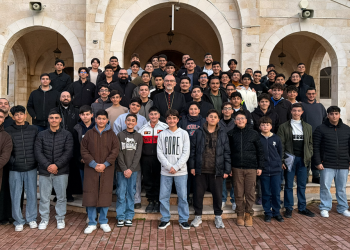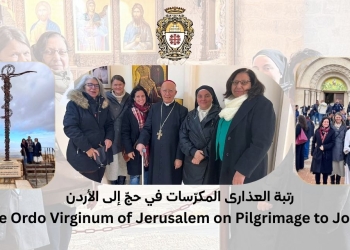Between September 28 and October 4, 2025, the Holy Land Commission embarked on its annual fall visit to the region. The committee—composed of Prof. Bartholomew McGettrick, Chair, Dr. Detlef Brummer, Mr. Tim Milner, accompanied by Mrs. Donna Milner—came to review projects overseen by the Latin Patriarchate and supported by the Order of the Holy Sepulchre of Jerusalem, under the leadership of Mr. Sami El-Yousef, CEO of the Patriarchate. This year, however, the visit took on a different character: in light of the tragic circumstances unfolding, the delegation confined its mission to Jordan, especially since the spring visit had been limited to Palestine and Israel.
The Holy Land Commission acts on behalf of the Equestrian Order of the Holy Sepulchre of Jerusalem, a pontifical lay institution under the protection of the Holy See. The Order’s mission is to strengthen the Christian presence in the Holy Land while supporting the charitable, cultural, and social initiatives of the Catholic Church, with particular focus on the Latin Patriarchate of Jerusalem, which also serves communities in Cyprus and Jordan. Members of the Order provide crucial financial assistance, which remains one of the Patriarchate’s primary sources of funding for its programs and outreach.
During their days in Jordan, the delegation immersed themselves in the life of the local Church. They met with those who dedicate their service to the Christian community, listening closely to the challenges and hopes that shape daily life in the region. Their journey also took them into the field, where they visited projects already underway, especially those implemented at the schools through the generous funding from the North American Lieutenancies “Ensuring the Future” Capital Campaign”, and explored plans for future initiatives. The visit culminated in the preparation of a detailed report, highlighting not only the donations entrusted to the Church but also the concrete fruits these contributions are bearing.
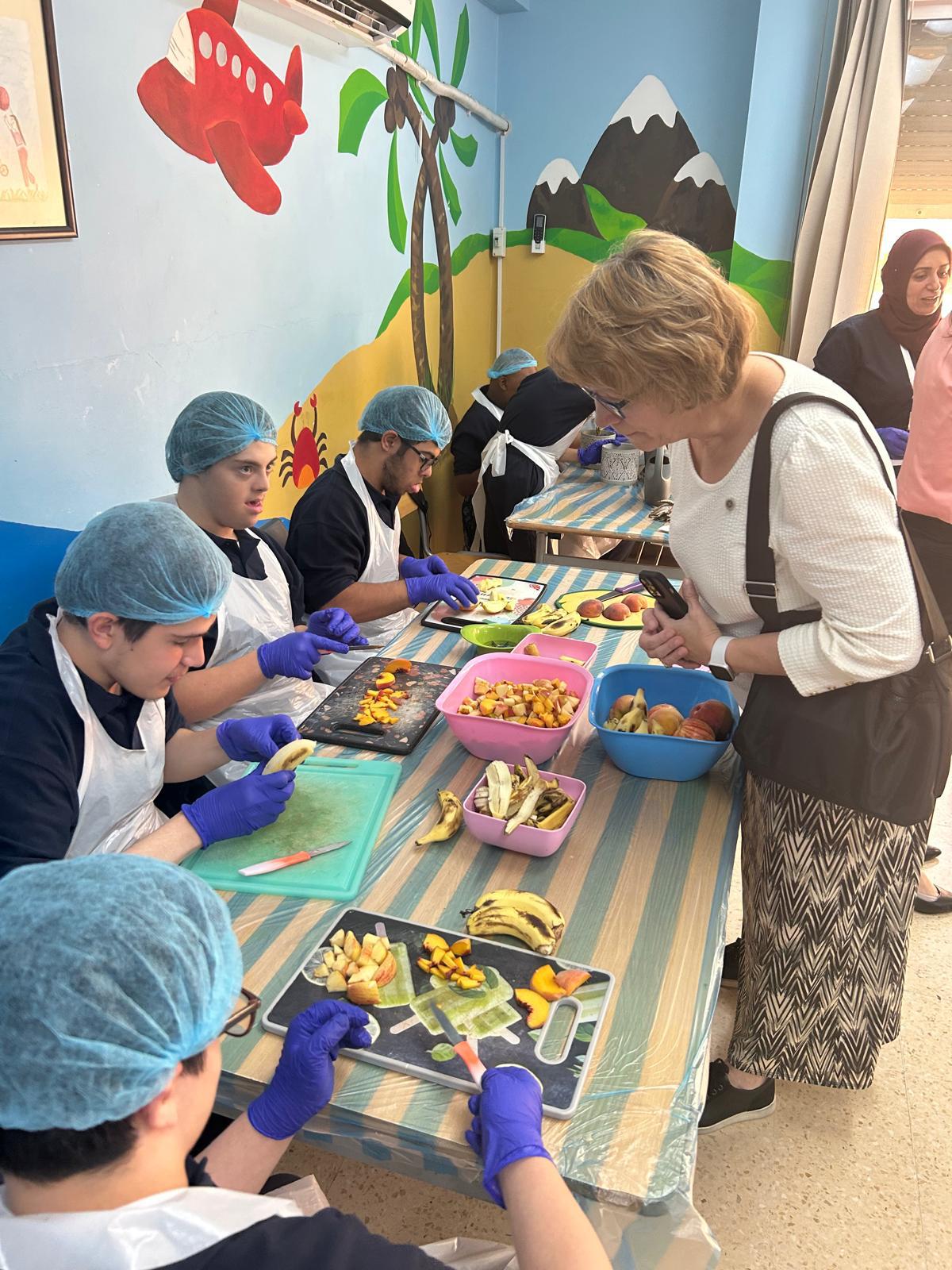
What follows is a detailed account of the Commission’s visit to Jordan, outlining each day’s activities, meetings, and key observations:
The visit began with a preliminary meeting with the Latin Patriarchate team to review the current situation of the Order in the Holy Land. The following day, the delegation met with Fr. Firas Nasraween, General Director of LPJ Schools in Jordan, who provided an in-depth overview of the schools’ operations and their vital role in the local communities. The delegation also met with Msgr. Iyad Twal, Patriarchal Vicar in Jordan, and several priests actively involved in youth and pastoral work, including Fr. Firas Aridah, Scout Chaplain, and Fr. Bashir Bader, Director of the Family Center.
Later, the Commission visited Latin Patriarchate schools in Jubeiha, Marka, and Na’our. At Na’our, major renovations and expansions are underway to add classrooms to accommodate growing community needs, especially the shifting internal migration in Jordan with shifting populations to Naour. This was also the case in Jubeiha where the school’s administration is considering an expansion to meet growing demand, demonstrating the Patriarchate’s commitment to quality education. In all school visits, members of the commission expressed their fondness of the results of the projects implemented whether infrastructure, expansion, computer labs, science labs, library, and playground upgrades and renovations, all resulting in safer and healthier environments conducive to quality education.
On Wednesday, October 1, the delegation visited the American University of Madaba, where they were warmly received by Prof. Mamoun Nadim Akroush, President of the University, and senior staff. Touring the campus and innovative laboratories, the Commission witnessed firsthand the high-quality higher education offered to students from across the region. Bishop Iyad Twal accompanied the delegation on their visit to AUM. The day concluded with a visit to the parish and school in Madaba, which serve a growing Christian community of over 800 weekly Mass attendees and 600 students, more than 400 of whom are Christian. The visit to Madaba was an important witness to the holistic work of the LPJ in their pastoral and educational mission and was an incredible opportunity to see how the work is integrated through the parish, schools and university in Madaba.
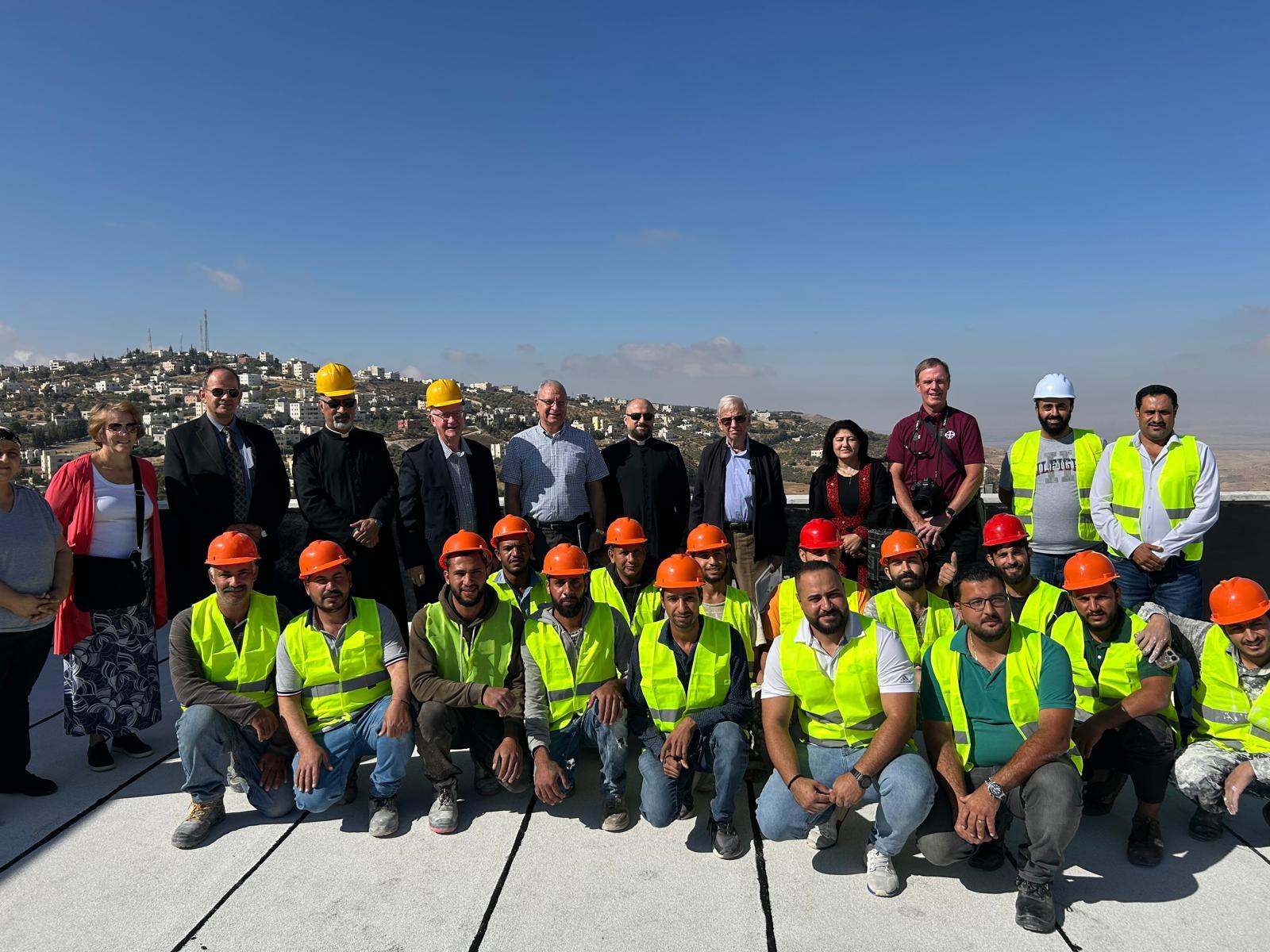
On Thursday, October 2, their visit focused on the humanitarian aspect. The delegation visited Caritas Jordan, reviewing ongoing aid projects and discussing future initiatives with Patriarchate staff. General Secretary Wael Suleiman gave an extensive overview of the humanitarian situation in Jordan, especially with reduced funding by major donors as a result of the Ukraine and Gaza wars. The Commission also met Iraqi refugees supported by the Order’s humanitarian funds who have been living in Jordan for 5–10 years, many awaiting immigration decisions, and learned about the critical support provided by the Latin Patriarchate to alleviate their difficult circumstances.
The visit concluded with a meaningful stop at the Our Lady of Peace Center, an institute offering educational and therapeutic services to disabled children and their families. Fr. Shawki Baterian and Ms. Hanan Deeb gave an impressive overview of the services, challenges and needs and highlighted that the center provides services to the poorest of the poor and through their outreach centers reach hundreds of thousands of beneficiaries annually. Supported by the Order for many years, the center is internationally recognized for its high-quality, free services that bring relief and hope to countless families.
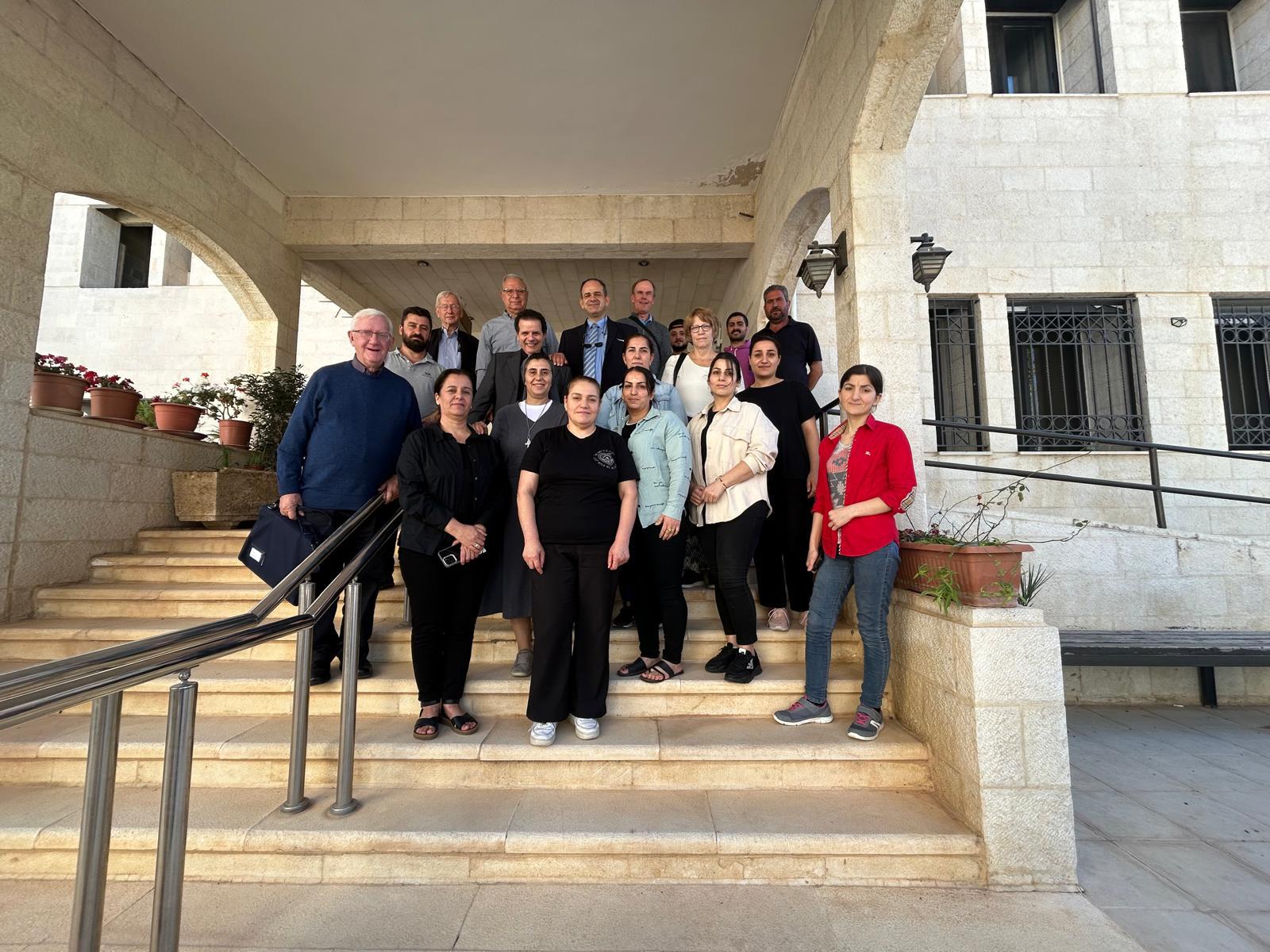
Finally, the Commission held an online meeting with Latin Patriarchate staff in Jerusalem to review ongoing projects and assess the impact of the emergency appeal launched at the start of the war, reaffirming the Church’s commitment to solidarity, education, and humanitarian service.
Sami El-Yousef, CEO of the Latin Patriarchate who accompanied the Commission during its weeklong visit commented that this was an extraordinary visit to highlight the work of the Latin Patriarchate in Jordan, given that it is the largest of the six vicariates it serves. Additionally, he noted that the work of the LPJ in other locations was highlighted during the visit to ensure that the commission gets a holistic view of the work of the LPJ in general and the work funded by the Order in particular. On behalf of all at the LPJ, he expressed his gratitude to the commission members and through them to the Order for the outstanding support it provides on an annual basis. Given the ever-growing work of the LPJ and needs of the local communities, he urged the Order to consider an increase in funding in the future to enable the LPJ to meet the growing needs and continue to be that beacon of hope to our local communities.


